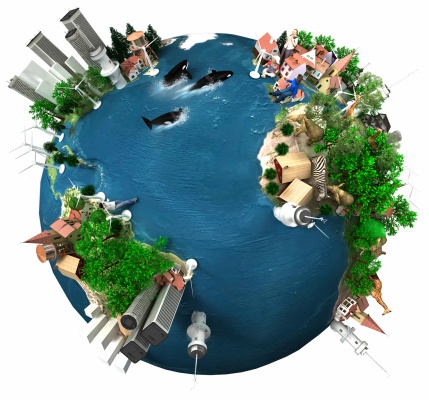Saturday, 30 March 2013
The ‘Amsterdam’ of Colorado?
By the end of 2013, any visitor to the town of Breckenridge in Colorado, USA, will be able to buy cannabis from licensed stores, provided they are over 21.
The town decriminalised cannabis in 2010 but currently anyone wanting to buy it must have a recommendation from a doctor.
As Heather Alexander explains, Breckenridge is standing by to see how the new freedom will affect tourism. Will visitors flock to its stores or will people be deterred from coming at all?
For source go here.
Friday, 29 March 2013
It Was Bankers That Brought Cyprus to the Brink
What is it about the islands around Europe's periphery?
Is there some peculiar psychological thing about proximity plus the illusion of isolation that makes them turn themselves into havens for runaway banks? Inquiring minds want to know.
Anyway, Cyprus's story has obvious parallels with both Iceland's and Ireland's, with R.M.M.L. — Russian mobster money laundering — as an extra ingredient. All three island nations had a run of rapid growth as their status as banking havens left them with banking systems that were too big to save. Iceland, at peak, had banks with assets that equaled 980 percent of gross domestic product; Ireland was at 440 percent. Cyprus, at around 800 percent, was closer to Iceland in this respect.
Is there some peculiar psychological thing about proximity plus the illusion of isolation that makes them turn themselves into havens for runaway banks? Inquiring minds want to know.
Anyway, Cyprus's story has obvious parallels with both Iceland's and Ireland's, with R.M.M.L. — Russian mobster money laundering — as an extra ingredient. All three island nations had a run of rapid growth as their status as banking havens left them with banking systems that were too big to save. Iceland, at peak, had banks with assets that equaled 980 percent of gross domestic product; Ireland was at 440 percent. Cyprus, at around 800 percent, was closer to Iceland in this respect.
Friday, 22 March 2013
Why do criminals smuggle garlic?
Sweden has issued international arrest warrants for two Britons suspected of illegally importing 10m euros (£8m) worth of garlic into the EU via Norway. Why would criminals do that?

Swedish state prosecutors claim to have cracked one of Europe's more seemingly strange, if lucrative, smuggling rings.
They say two British men are believed to have made millions of euros smuggling Chinese garlic from Norway into Sweden.

Swedish state prosecutors claim to have cracked one of Europe's more seemingly strange, if lucrative, smuggling rings.
They say two British men are believed to have made millions of euros smuggling Chinese garlic from Norway into Sweden.
Monday, 18 March 2013
Revival of the British butler
The TV series Downton Abbey is now being shown in more than 100 countries and has generated an interest in the fine art of butling.
But what qualities do you need to be a good butler? David Lewis takes some training and discovers that some hotels are now offering guests their own personal butler during their stay.
For source go here.
Saturday, 16 March 2013
Is 'free will' really free?
Advances in neuroscience mean it is now possible to map areas of the brain to actions.
Anthony Gottlieb, who recently wrote an article about it in the Economist Intelligent Life magazine and Professor Patrick Haggard from the Institute of Cognitive Neuroscience at UCL debate what new scientific evidence tells us about our so-called "freedom to choose"
Friday, 15 March 2013
World's unfriendliest nations for tourists?
When traveling, some countries just don't like you. Or at least, it can certainly feel that way.
A new report,
put out earlier this month by the World Economic Forum, has ranked
which countries roll out the welcome mat to travelers and which give the
cold shoulder.
The "Travel and Tourism
Competitiveness Report 2013" ranked 140 countries according to
attractiveness and competitiveness in the travel and tourism industries.
Thursday, 14 March 2013
Calorie Detective
With the help of a science lab, the filmmaker Casey Neistat finds that calorie listings on food labels can be highly inaccurate.
For source go here.
For source go here.
Wednesday, 13 March 2013
E-books added to Inflation Basket
 |
| Thousands of prices are collected from 150 different areas of the UK |
E-books have been added to the basket of goods used to calculate the UK's rate of inflation, but Freeview set-top boxes are out.
The latter has been replaced in the basket by digital television recorders, signalling the changing face of technology.
The Office for National Statistics (ONS) updates the basket each year so the contents accurately reflect current trends in spending.
The basket contains about 700 items.
Tuesday, 12 March 2013
Yahoo bans work from home: tele-commuters back in the office?
Two weeks ago Yahoo banned working from home.
Overnight another major US company ordered its tele-commuters back to the office. That's sparked a new debate on the costs and benefits of working from home.
For source go here.
Overnight another major US company ordered its tele-commuters back to the office. That's sparked a new debate on the costs and benefits of working from home.
For source go here.
Monday, 11 March 2013
Finding the Visible in the Invisible
A team of scientists at the Massachusetts Institute of Technology has
developed a computer program that reveals colors and motions in video
that are otherwise invisible to the naked eye.
For source go here.
For source go here.
Tuesday, 5 March 2013
We Didn’t Domesticate Dogs. They Domesticated Us.
Scientists argue that friendly wolves sought out humans.
In the story of how the dog
came in from the cold and onto our sofas, we tend to give ourselves a
little too much credit. The most common assumption is that some
hunter-gatherer with a soft spot for cuteness found some wolf puppies
and adopted them. Over time, these tamed wolves would have shown their prowess at hunting, so humans kept them around the campfire until they evolved into dogs.
Monday, 4 March 2013
Gulf gets a taste for luxury foods
Sunday, 3 March 2013
Global resources stock check
If we fail to correct current consumption trends, then when will our most valuable natural resources run out?
As the world’s population soars, so does its consumption, and as a result we are stretching many of our natural resources to their limits.
Of course, the assumption is that human ingenuity and market forces will prevent supplies from running out: we could create better or cheaper extraction methods, recycle materials, find alternatives to non-renewable sources, or reduce consumption.
As the world’s population soars, so does its consumption, and as a result we are stretching many of our natural resources to their limits.
Of course, the assumption is that human ingenuity and market forces will prevent supplies from running out: we could create better or cheaper extraction methods, recycle materials, find alternatives to non-renewable sources, or reduce consumption.
Saturday, 2 March 2013
Why we're so hooked on technology (and how to unplug)
Do you respond to the beep, ping, rattle and shake of your gadgets on command? You may be suffering from digital distress -- or maybe even a case of Social Media Anxiety Disorder -- and you might be in need of a digital purge.
Sound like something you could benefit from? This Friday, March 1, marks the fourth annual National Day of Unplugging. Participants around the country can pledge to unplug from their digital crutches for a full 24 hours -- from sunset to sunset -- while experiencing the forgotten art of being present.
Why unplug? “We’ve reached a point where all of our technological devices are using us, rather than the other way around,” Gemini Adams, author of “The Facebook Diet” (coming out April 2013) told The Huffington Post.
Sound like something you could benefit from? This Friday, March 1, marks the fourth annual National Day of Unplugging. Participants around the country can pledge to unplug from their digital crutches for a full 24 hours -- from sunset to sunset -- while experiencing the forgotten art of being present.
Why unplug? “We’ve reached a point where all of our technological devices are using us, rather than the other way around,” Gemini Adams, author of “The Facebook Diet” (coming out April 2013) told The Huffington Post.
Subscribe to:
Comments (Atom)




